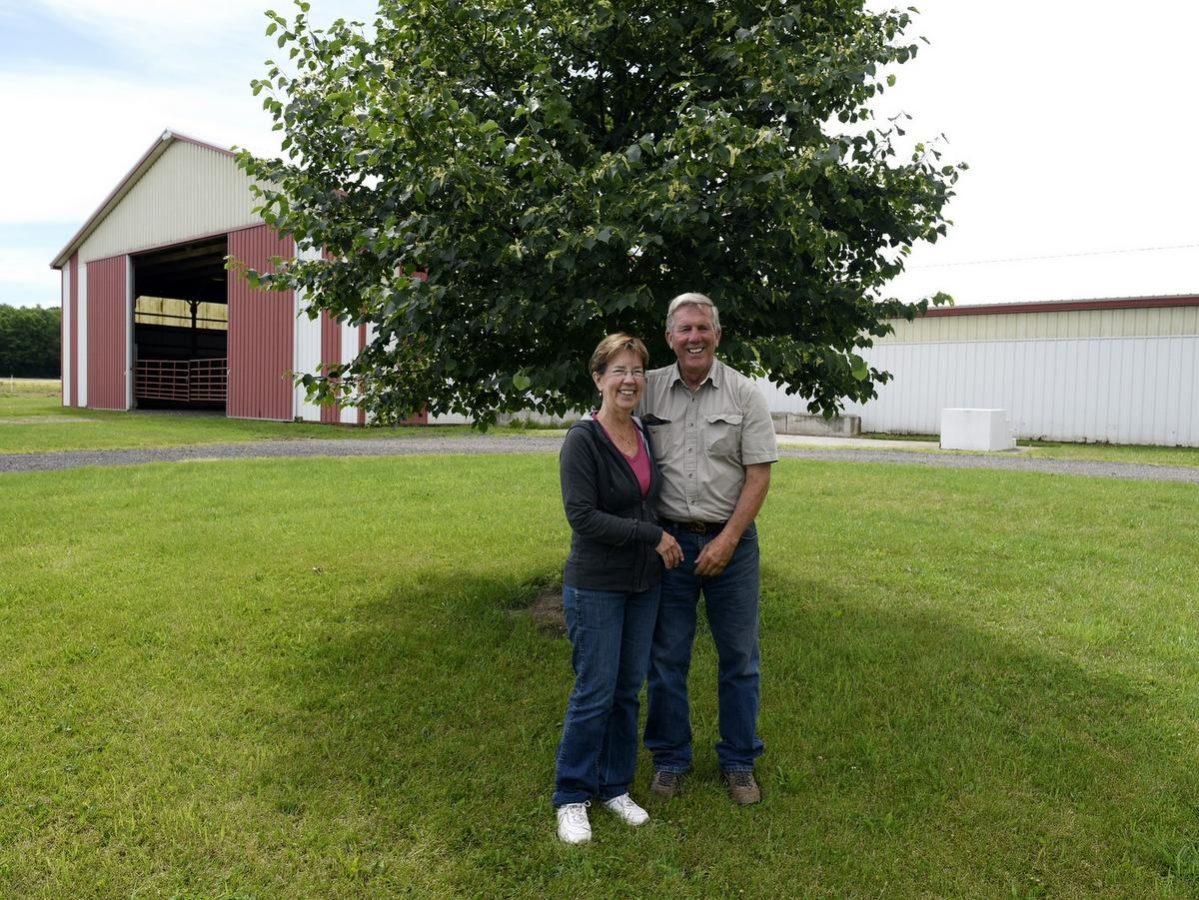A recent report published by the American Farmland Trust revealed that between 1992 and 2012, almost 31 million acres of agricultural land in the U.S. were irreversibly lost to development. This loss included almost 11 million acres of the best land for intensive food and crop production. The Land Trust is working with partners in the Finger Lakes region to alleviate this alarming trend.
Set in a rolling agricultural landscape, Brock Acres—a commodity crop farm located in the towns of Canandaigua and East Bloomfield—is one of many at-risk farms in the region. In recent years, residential development pressure has become intense in this area of Ontario County, given its proximity to the city of Rochester. But thanks to a partnership between the Land Trust, the Town of Canandaigua, and New York State’s Department of Agriculture & Markets (NYSDAM), 700 acres of this prime farmland is now permanently protected with a conservation easement.
The farm is owned by Kim and Scott Brocklebank, and together with their son and business partner Travis, it currently produces soy, corn, wheat, and hay. Scott is the 5th generation and Travis is the 6th to operate the farm. The original land was bought in 1858 by the Brocklebank family who first milked Guernsey cows.
Over the years, the Brocklebank family has upgraded the equipment used on the farm, and purchased larger equipment to help improve efficiency. Most of the equipment is outfitted with satellite positioning (GPS) guidance, which allows for more efficient use of fertilizers and seeds, and also saves time and resources. This is important since the farm drains into Beaver Creek, Mud Creek and Padelford Brook, which is a primary tributary to the Canandaigua Outlet. The Brocklebanks have also worked with the Ontario County Soil and Water Conservation District to install various water management projects to ensure nutrient runoff be captured and kept out of water courses.
Funds for the project came from the state’s Farmland Protection Implementation Grants Program (FPIG), administered by NYSDAM, as well as the Town of Canandaigua. The Land Trust will hold and enforce the easement, protecting the land from ever being developed. Conservation easements are voluntary legal agreements that permanently limit future land use in order to protect the land’s conservation value. Lands subject to conservation easements remain in private ownership, on local tax rolls, and available for traditional uses such as farming and hunting.
Brock Acres is the fourth farm protected through a partnership between New York State, the Town of Canandaigua, and the Land Trust. The Town, with funding from NYSDAM, recently developed an Agriculture and Farmland Protection Plan, which includes the recommendation for adoption of a greenway called the “Padelford Brook Greenway.” With the goal of reducing commercial and residential development pressure through rezoning, the greenway would be located in the northern portion of the town and encompass 10,800 acres of farmland.
“The commitment of the Brocklebank family to protecting their farm is outstanding,” said Elizabeth Newbold, Project Manager for the Land Trust. “They first started the process with the Town in 2012, showing their long-term dedication to preserving their land. This project protects a beautiful farm and the history and legacy of a wonderful family’s stewardship of that land.”
“It is important to the Brocklebank family to protect our farmland from development because we have seen so much of the land we have farmed in the past become housing developments,” said Kim Brocklebank. “If this were to continue there would not be farmland in our area for future generations and for the community to enjoy the beauty of open fields and woods. Farming has been a way of life for our family for six generations and we feel it is important provide the opportunity to our family to continue farming. Farms provide economic benefits to the community, and open space provides enjoyable scenery for the tourism industry. We are grateful to our town and state for recognizing the need to support the preservation of farmland.”


